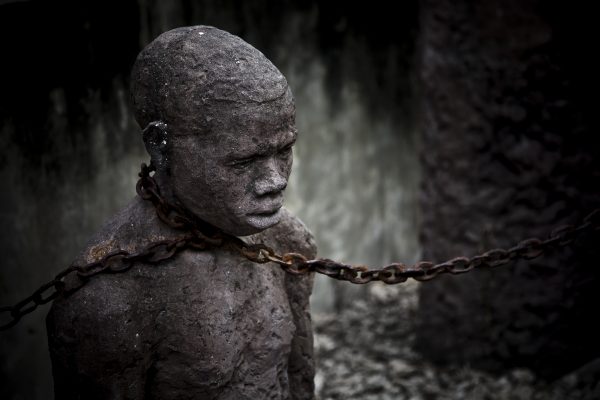Here are three important lessons on what the earliest converts to Islam can teach us today.
Here are three important lessons on what the earliest converts to Islam can teach us today.
Alhamdulillah, we now live in a world where nearly 2 billion people profess the Muslim faith. However, this was not always the case. In the time of Muhammad ﷺ, Islam began with just a tiny minority of extraordinary people. Their stories contain many lessons for us, although no article could do justice to the full merits of their characters.
Khadijah bint Khuwaylid
Khadija, the Prophet’s ﷺ first wife, remains admired around the world as the embodiment of a successful Muslim lady. She was the very first human being to accept the Prophethood of Muhammad ﷺ, and is remembered for her extraordinary success in all spheres of both her public and private life.
As one of the most prosperous businesswomen in Arabia, Khadija demolishes the Islamophobic stereotype of associating oppression and inactivity with femininity. She, like many women to this day, built an illustrious career in a male-dominated economic environment. After becoming successful, Khadija took on Muhammad ﷺ as an employee, and was quickly struck by his outstanding manners and trustworthy character.
They soon married, after which she turned her focus to becoming the best possible wife, mother and – after the first revelation – Muslim. Her acceptance of Muhammad’s ﷺ Prophethood marked the beginning of a lifelong, unfailing devotion to support his sacred mission. Khadija was also widely known for her charity and remembrance of the needy. She was dearly loved and cherished by her husband, and her death resulted in a profound sense of grief and loss.
Khadija reminds us of the immense value that women bring to the Muslim world, whether it is as an active member of the community or as a source of loyal support in the home. Khadija was never deterred by Islamophobic oppression, and today is known as the mother of the believers, may Allah have mercy upon her. Her life highlights the versatility and depth of character of women in Islam, both as mothers, businesswomen, wives, and Muslims.
Abu Bakr As-Siddiq
Abu Bakr, may Allah be pleased with him, was born to a wealthy and noble family in Mecca. As a successful businessman, he was widely respected for his intelligence and honourable character. Even before the arrival of Islam, Abu Bakr shunned the pervasive idol worship of his surrounding society, choosing instead the religion of Ibrahim, peace be upon him.
When Muhammad’s ﷺ divine message reached Abu Bakr, his conversion was instantaneous. The Prophet Muhammad ﷺ is recorded to have said, “Whomever I invited to Islam at first hesitated except Abu Bakr.” Abu Bakr’s zeal for supporting Islam continued throughout his life, and he went on to become not only one of the most successful callers to Islam, but one of the closest friends to Muhammad ﷺ.
When the Meccans saw a man of such status and intelligence as Abu Bakr accepting Muhammad ﷺ, the message of the Muslims became amplified. Although Abu Bakr’s personal efforts to call his community to Islam saw much success, he too was a victim of brutal persecution and was nearly killed. Nevertheless, Abu Bakr remained steady in his efforts and in his faith, and he lived to see the immense success of the Muslim people.
When calamity befell the Muslims with the death of Muhammad ﷺ, Abu Bakr proved pivotal in maintaining order among the Muslims. The death of the Prophet ﷺ was so devastating to his companions that some simply refused to believe it. Despite sharing in their grief, Abu Bakr put his emotions aside and reminded them that although a prophet, Muhammad ﷺ was subject to death like all humans. Abu Bakr went on to serve as caliph of the Muslims, and successfully oversaw the affairs of the Muslim state.
His life reminds us of the severe trials Muslims go through on their path to success, and his zeal for supporting the message of Islam should inspire us all. Abu Bakr’s consistent devotion even under persecution is a mark of his faith, and he proved himself to be a responsible, reliable leader even during emotional turmoil. When the situation required it, Abu Bakr was there as a friend, father, teacher, leader, and defender of the oppressed.
Bilal ibn Rabah
Bilal, may Allah be pleased with him, was born into a life of toil, poverty, and misery. As a black slave of Ethiopian ancestry, he suffered at the hands of a society fuelled by racism and elitism.
After the message of Islam reached him, Bilal quickly denounced polytheism and accepted the true faith. This move enraged his cruel owner – a member of the Quraysh nobility – who set up a campaign of brutality upon Bilal.
In a famous scene, Umayyah bin Khalaf violently tortured Bilal while demanding that he accept multiple gods. Even when under such pain Bilal held on to the truth, with the central teaching of Islam falling from his lips, “One, one”. At this point, Abu Bakr was passing by and was so moved by pity that he used his own funds to free Bilal from slavery.
Bilal went on to become among the closest and most trusted companions of Muhammad ﷺ. His life was highlighted by the honour of becoming the first muezzin. After the conquest of Mecca – in the very city where his existence used to hang by a thread – Bilal climbed the Kaaba and delivered the Adhan to thousands of fellow Muslims. This powerful scene reminds us that ultimately Allah is with the Muslims, and He bestows honour upon who He wills of his servants.
Bilal’s piety was marked by his exclusive fear of Allah. He was undeterred by threats or lack of status, and understood that the value of truth stood above comfort. Bilal entered this world unknown and condemned, but he left it as the first in a great legacy of noble African Muslims. Ultimately, he remained devout in his faith, and Allah granted him great status in this world and the next.
Source
Safiur-Rahman Al-Mubarakpuri (1976) The Sealed Nectar: Biography of the Noble Prophet, Darussalam.





